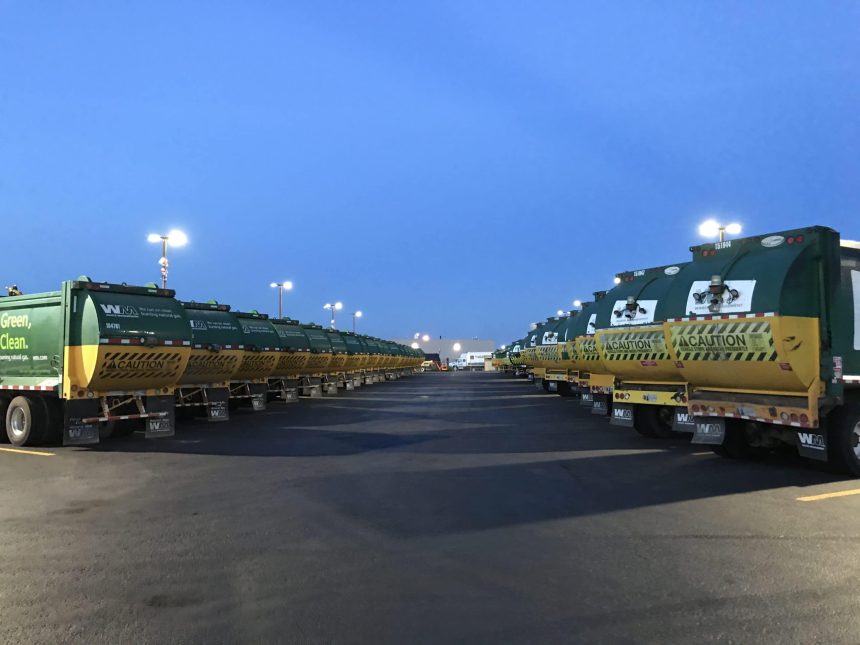Photo courtesy of Waste Management
From fireworks to flaming coals, there are plenty of fire hazards present at most 4th of July celebrations, so how do you dispose of them? Waste Management has you covered.

The company states that the most common causes for fires in garbage or recycling trucks – especially in the summertime – are hot barbecue coals and ashes; flammable items, such as pool chemicals and paint, lighter fluid and propane tanks; lithium ion and rechargeable batteries; and fireworks. These flammable materials create an unsafe situation for our workers, neighbors and fire safety personnel.
As we get ready to celebrate the 4th of July, Waste Management offers these safety tips for flammable household waste:
- Hot coals or ashes should never be placed in a trash container.
- Cool coals for several days on the grill or in a metal container full of water then seal the container with a tight lid before placing in your trash can.
- Never place used coals in plastic, paper or wood containers for disposal.
- Keep all flammable and hazardous materials out of your waste and recycling containers including lithium ion and rechargeable batteries, paint, chemical products, fluorescent lights, pesticides and oil rags. Visit your parish/city website to locate Household Hazardous Waste drop off locations in your area.
- Collect your used lithium-ion batteries (from toys, greeting cards and electronics) and rechargeable batteries in small plastic bags and take them to a hardware store or other drop-off point for recycling.
- Make sure to properly dispose of used fireworks debris. The National Council on Fireworks Safety advises soaking used fireworks in water and letting them sit for 15 minutes before disposal. Dispose of all other debris including used matches, wrappers, etc. in your trash can to prevent littering and water contamination from gunpowder residue.
The company also urges you to use reusable dishware in an effort to reduce waste. They say, if that’s not an option, try to buy environmentally friendly tableware instead. Look for products made from renewable, plant-based materials like sugar cane and bamboo that will biodegrade in compost piles and landfills. Each year, Americans toss out enough paper plates, plastic cups, and disposable utensils to circle the equator 300 times.







